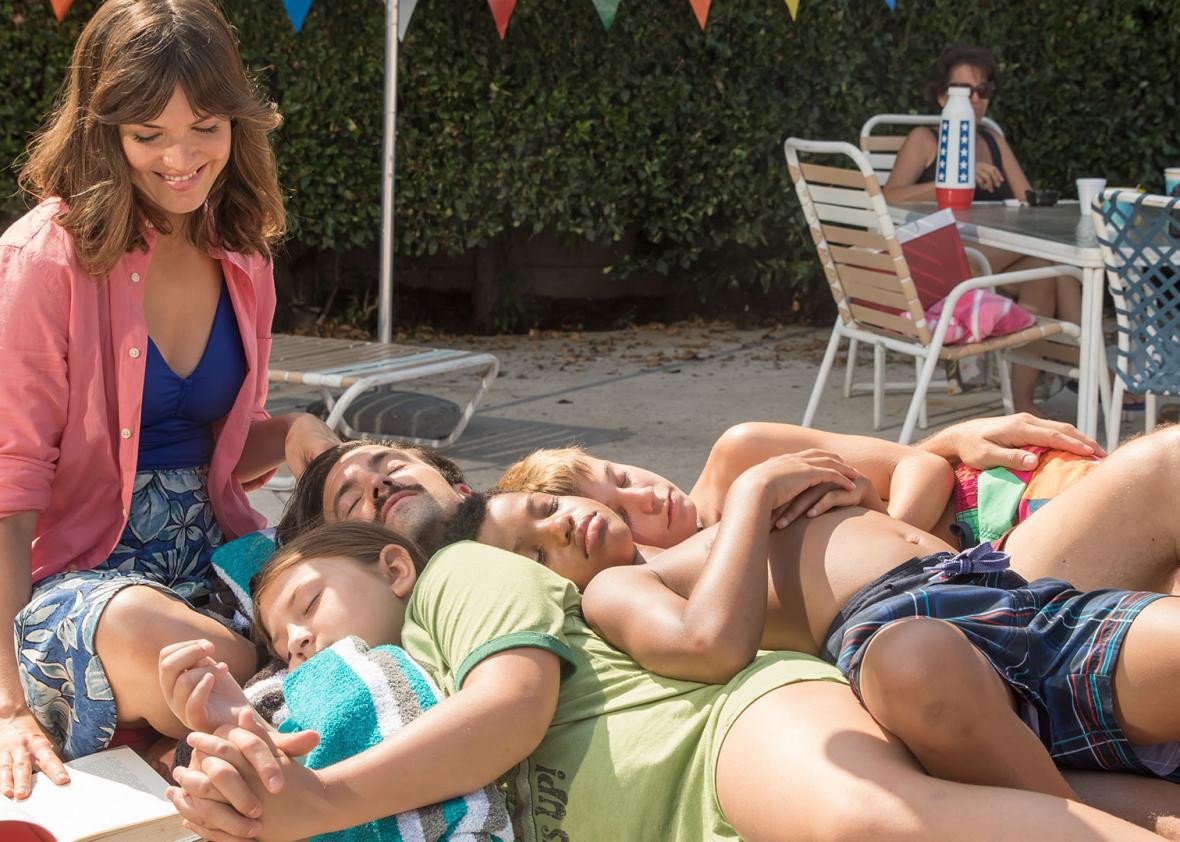In May, the trailer for NBC’s ensemble family drama This Is Us hit it big, netting an estimated 80 million views across digital platforms within just two weeks. The show, which follows a group of interconnected characters who have the same birthday, effectively went viral before it even premiered: While relatively modest in star power (Mandy Moore, Milo Ventimiglia, and The People v. O.J. Simpson’s Sterling K. Brown are the banner names), its trailer cannily tugged on the heartstrings and offered a touch of mystery, too. Its tagline alone was enough to well the eyes: “This is real. This is love. This is life. This Is Us.”
Since debuting in September, This Is Us has steadily accumulated buzz, now pulling in nearly 10 million live viewers per week. (That still doesn’t include the online viewers or binge-watchers who check out the series in chunks.) Similar to Empire a few years ago, the series has emerged as the rare contemporary broadcast drama to really strike a chord across the country. But where Empire and other recent network hits like Scandal thrived in part by reaching an underserved and underrepresented audience, This Is Us has bucked ratings trends in less obvious ways. Dan Fogelman’s series has served as heartwarming counterprogramming to a notoriously difficult year. It’s become the ideal escapist television show for 2016.
The show centers on the Pearson family: parents Jack (Ventimiglia) and Rebecca (Moore), twin siblings Kate (Chrissy Metz) and Kevin (Justin Hartley), and adopted third child Kyle, whose name is eventually changed to Randall (Brown). Their story is told in fragments, shifting between time periods and consistently complicated by surprise reveals. Fogelman attempts to reconcile the extraordinary within the ordinary, depicting everyday and epic challenges in the aesthetic of a grand melodrama. His style can have the mawkish feel of late-era Garry Marshall—the sappy monologues and quippy dialogue, the blatant manipulations and contrivances. Indeed, This Is Us makes enough plays for sniffles to cause even the not-so-cynical to wince. And yet, somehow, it works.
This Is Us is serialized, but it understands the easy pleasures of an episodic medium. Each sibling in the show works through their primary issues on an ongoing basis over the course of multiple episodes, while smaller interpersonal conflicts are movingly resolved by the hour. Randall’s arc is a good example: Abandoned by his impoverished, drug-addicted father at a fire station when he was a baby, he is now an adult grappling with his identity as a black man living in an affluent, mostly white neighborhood. There’s no endpoint or resolution to his journey in sight. Yet weekly episodes still offer satisfying moments of narrative closure: Individual episodes tackle topics ranging from Randall’s troubled relationship with his adoptive brother to his reluctance at bringing his dying birth father into his life, and they provide the happy endings—the climactic moments of uplift—that fuel the drama. The show’s specific, grounded treatment of racial consciousness doubles as an inspiringly (if excessively) utopian vision of people at odds, coming together.
This Is Us sustains a level of highbrow credibility by not shying away from messy problems. But significantly, its characters are kept uncomplicated: They’re fundamentally good people trying to make the most of the flawed hand that life has dealt them. Flashbacks to Rebecca and Jack raising three young children are convincingly chaotic, presenting the familiar challenges of raising a large family with limited resources; their love for their kids and each other is never questioned, even as life takes its toll on them. It’s a dreamily American story. The show’s packaging is simple but persuasive: decent folks just like you, working to overcome adversity, celebrating minor victories, taking two steps forward and one step back.
The show’s main selling point—it’s both a reminder of the goodness and perseverance in the American spirit and a rosy vision of racial and class unity—is especially potent for those who feel stained by the ugliness of this campaign and everything surrounding it. Of course, This Is Us is at its core a product using schmaltz to sell ads and iTunes buys. But the show hits its emotional beats with precision and subtlety and transcends the limitations of a hollow, corny film like Valentine’s Day by balancing tearjerking with character studies that demand investment. Kate’s story, for instance, may seem like a rip-off of NBC’s The Biggest Loser—dramatizing weight loss for mass entertainment—but Metz’s nuanced performance keeps it from feeling exploitative. This Is Us’ conspicuous manipulations begin to feel irrelevant, even like part of the attraction. After all, this is a show confident enough to compile a completely serious and unironic montage to “Time After Time.” This Is Us is a slice of glossy Americana that strives to deliver some sweet relief. It’s an inclusive, intimate, idyllically imperfect vision of domestic life that—unabashedly—aims straight for the gut.
